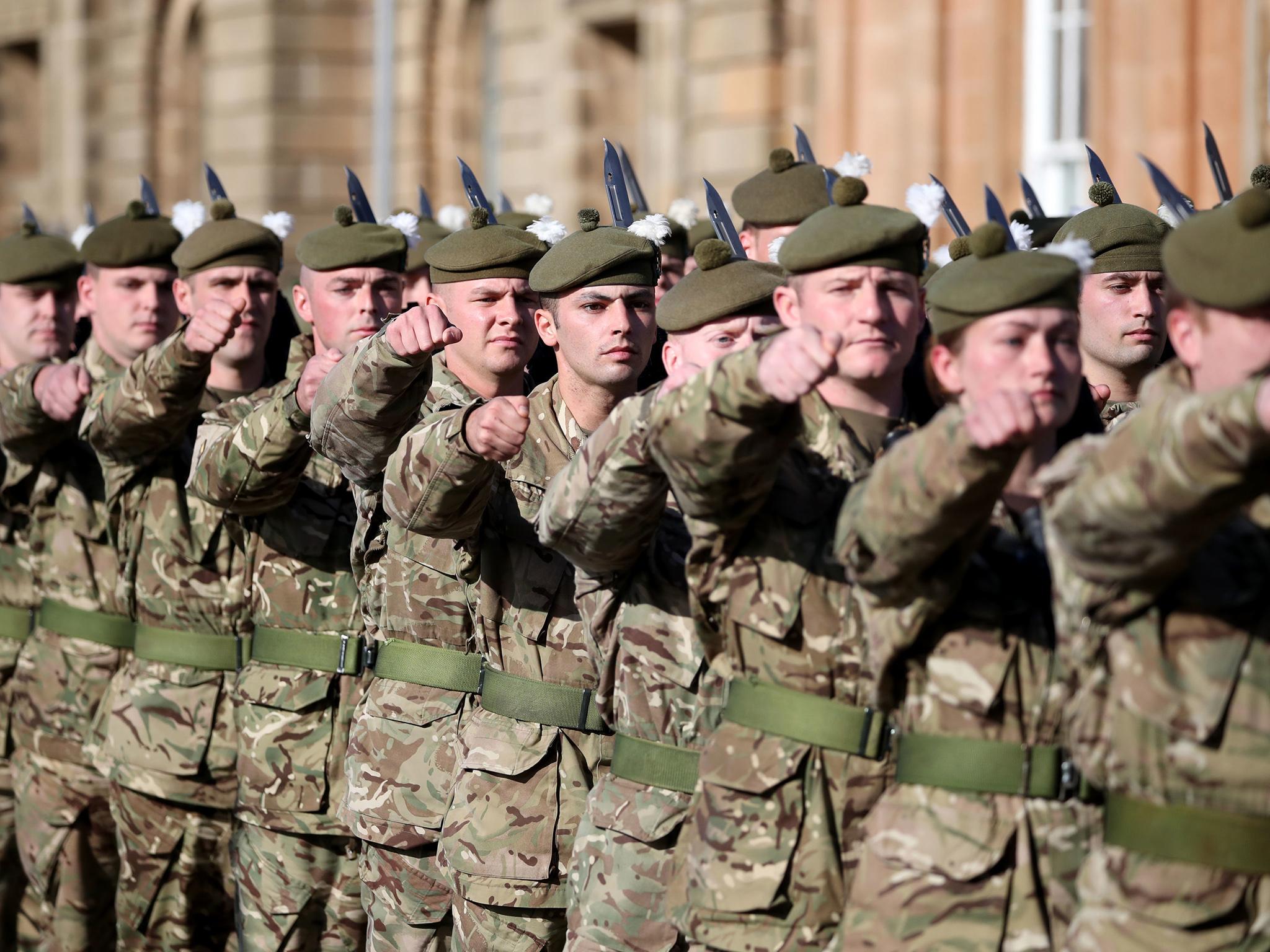Armed forces to trial brain scanners to monitor soldiers' state of mind
Nearly £1m to be spent on wellbeing schemes in bid to improve mental health support and training

Your support helps us to tell the story
From reproductive rights to climate change to Big Tech, The Independent is on the ground when the story is developing. Whether it's investigating the financials of Elon Musk's pro-Trump PAC or producing our latest documentary, 'The A Word', which shines a light on the American women fighting for reproductive rights, we know how important it is to parse out the facts from the messaging.
At such a critical moment in US history, we need reporters on the ground. Your donation allows us to keep sending journalists to speak to both sides of the story.
The Independent is trusted by Americans across the entire political spectrum. And unlike many other quality news outlets, we choose not to lock Americans out of our reporting and analysis with paywalls. We believe quality journalism should be available to everyone, paid for by those who can afford it.
Your support makes all the difference.British troops could be fitted with brain scanners to monitor their state of mind during operations in a bid improve mental health support.
Soldiers may also be offered a "virtual life coach" to help them with motivation, stress and "personal and career goals" in a series of trials by military scientists.
The Defence and Security Accelerator (Dasa) - part of the Ministry of Defence (MoD) - said it was funding seven projects aimed at improving the welfare of armed forces personnel.
Nearly £1m is being spent developing and testing artificial intelligence, psychological and neuroscience tools and technology - such as brain scanners - in a bid to boost the training, wellbeing and mental health support for troops.
The organisation is tasked with finding and funding technology which can give the UK's defence and security services a "strategic advantage over adversaries".
Defence chief lieutenant general Richard Nugee said the projects would look at improving training methods, pastoral care and mental health, adding: "Defence innovation is about more than just the kit our armed forces use. It's also about our men and women who serve our country."
The funding has been awarded to companies and organisations in London, Birmingham, Winchester, Farnborough and Kent.
Affect In Ltd, in Winchester, has been allocated around £140,000 to try out technology "measuring cognitive loading" which will be tested with air traffic control and during air battle training at RAF Shawbury in Shropshire.
"The technology uses easily worn and harmless brain-scanning technology to provide real-time feedback on how well the training is achieving its aims," Dasa said.
The University of Kent has been awarded about £290,000 to begin "brain endurance training trials" with the RAF and the Army to tackle fatigue experienced by pilots and soldiers.
Birmingham-based Daden Ltd has been awarded around £150,000 to test a "virtual life coach" which can help with day-to-day personal and career issues to help motivation.
The system will also track "satisfaction, stress and help personnel set long-term personal and career goals" when it is trialled at RAF Fylingdales in Yorkshire.
The British armed forces have faced a staffing crisis with figures indicating a decline in the number of soldiers in recent years, prompting criticism of the MoD's outsourcing company Capita which was tasked with recruitment.
QinetiQ, in Farnborough, has been awarded about £150,000 for a trial with the Army which will see an automated system gathering troops' views and feeding back the results in real-time.
Dasa said: "This aims to reduce the time it takes to identify any issues experienced by personnel to allow solutions to be put in place quicker and to maintain staff morale."
DIEM Analytics, in London, has been awarded around £150,000 to develop a robot which will interview service personnel and analyse the experiences of troops after active duty.
This could save costs on carrying out thousands of one-to-one interviews or could encourage them to speak honestly if they feel "more comfortable talking to a computer about some issues than a human".
Johnny Mercer, the minister for defence people and veterans, welcomed the funding, adding: "Our armed forces serve this country to an exceptional standard and help to keep us safe, so it's only right that they receive the best possible training and support."
PA
Join our commenting forum
Join thought-provoking conversations, follow other Independent readers and see their replies
Comments